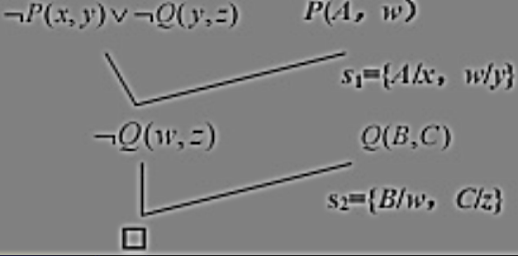1022. Digital Library (30)
A Digital Library contains millions of books, stored according to their titles, authors, key words of their abstracts, publishers, and published years. Each book is assigned an unique 7-digit number as its ID. Given any query from a reader, you are supposed to output the resulting books, sorted in increasing order of their ID’s.
Input Specification:
Each input file contains one test case. For each case, the first line contains a positive integer N (<=10000) which is the total number of books. Then N blocks follow, each contains the information of a book in 6 lines:
- Line #1: the 7-digit ID number;
- Line #2: the book title — a string of no more than 80 characters;
- Line #3: the author — a string of no more than 80 characters;
- Line #4: the key words — each word is a string of no more than 10 characters without any white space, and the keywords are separated by exactly one space;
- Line #5: the publisher — a string of no more than 80 characters;
- Line #6: the published year — a 4-digit number which is in the range [1000, 3000].
It is assumed that each book belongs to one author only, and contains no more than 5 key words; there are no more than 1000 distinct key words in total; and there are no more than 1000 distinct publishers.
After the book information, there is a line containing a positive integer M (<=1000) which is the number of user’s search queries. Then M lines follow, each in one of the formats shown below:
- 1: a book title
- 2: name of an author
- 3: a key word
- 4: name of a publisher
- 5: a 4-digit number representing the year
Output Specification:
For each query, first print the original query in a line, then output the resulting book ID’s in increasing order, each occupying a line. If no book is found, print “Not Found” instead.
Sample Input:
31111111The Testing BookYue Chentest code debug sort keywordsZUCS Print20113333333Another Testing BookYue Chentest code sort keywordsZUCS Print220122222222The Testing BookCYLLkeywords debug bookZUCS Print2201161: The Testing Book2: Yue Chen3: keywords4: ZUCS Print5: 20113: blablabla
Sample Output:
1: The Testing Book111111122222222: Yue Chen111111133333333: keywords1111111222222233333334: ZUCS Print11111115: 2011111111122222223: blablablaNot Found
题目大意:
数字图书馆中有数以百万计的书籍,根据书的书名、作者、他们的摘要、出版商和出版日期的关键字来储存。每一本书都有一个唯一的7位数字作为他的ID。给定读者的查询,你的任务是按照ID序列输出查询到的书籍。
输入规格:
每个输入文件包含一个测试用例。对于每种情况,第一行包含一个正整数N(<=10000),表示书的总数。然后接下来是N本书,每本书都包含6行信息:
第1行:7位数字的ID号;
第2行:书名—一个不超过80个字符的字符串;
第3行:作者—一个不超过80个字符的字符串;
第4行:关键字—每个单词都是不超过10个字符的字符串,没有空格,关键字只被一个空格隔开;
第5行:发布者—一个不超过80个字符的字符串;
第6行:出版日期—一个4位数,范围[1000,3000].
假设每本书只属于只属于一个作者,包含不超过5个关键字;总数不超过1000不同的关键字个;而且不超过1000家不同的出版商。
在图书信息之后,有一行包含一个正整数M(<=1000),这是用户搜索查询的数量。然后接下来是M行,每一行格式如下:
1:一个书名。
2:作者姓名。
3:一个关键字。
4:出版商的名字。
5:一个4位数字代表一年。
输出规范:
对于每个查询,首先在一行中打印出原始查询,然后按升序输出结果图书的ID,每个占用一行,如果没有找到书,打印“Not Found”。
代码:
#include<stdio.h>#include<string.h>#include<stdlib.h>struct node{char ID[10];char title[100];char author[100];char keywords[100];char publisher[100];char publishedyear[10];}libary[10001];int cmp(const void *a,const void *b){return strcmp((*(node *)a).ID,(*(node *)b).ID)>0?1:-1;}int main(){int i,j,n,m,k,t,flag;char str[100],c;scanf("%d",&n);getchar();for(i=0;i<n;i++){gets(libary[i].ID);gets(libary[i].title);gets(libary[i].author);gets(libary[i].keywords);gets(libary[i].publisher);gets(libary[i].publishedyear);}qsort(libary,n,sizeof(libary[0]),cmp);scanf("%d",&m);for(i=0;i<m;i++){scanf("%d: ",&k);gets(str);printf("%d: %s\n",k,str);flag=0;for(j=0;j<n;j++){if(strcmp(str,libary[j].title)==0){printf("%s\n",libary[j].ID);flag=1;}else if(strcmp(str,libary[j].author)==0){printf("%s\n",libary[j].ID);flag=1;}else if(strcmp(str,libary[j].publisher)==0){printf("%s\n",libary[j].ID);flag=1;}else if(strcmp(str,libary[j].publishedyear)==0){printf("%s\n",libary[j].ID);flag=1;}else if(strstr(libary[j].keywords,str)!=NULL){printf("%s\n",libary[j].ID);flag=1;}}if(flag==0){printf("Not Found\n");}}return 0;}
错误代码:
感觉这样做应该可以啊,不知道哪错了,求大神告知。。。。。。

#include<stdio.h>#include<string.h>#include<stdlib.h>struct node{char ID[10];char title[100];char author[100];char keywords[100];char publisher[100];int publishedyear;}libary[10001];int cmp(const void *a,const void *b){return strcmp((*(node *)a).ID,(*(node *)b).ID)>0?1:-1;}int main(){int i,j,n,m,k,t,flag;char str[100],c;scanf("%d",&n);for(i=0;i<n;i++){getchar();gets(libary[i].ID);gets(libary[i].title);gets(libary[i].author);gets(libary[i].keywords);gets(libary[i].publisher);scanf("%d",&libary[i].publishedyear);}qsort(libary,n,sizeof(libary[0]),cmp);scanf("%d",&m);for(i=0;i<m;i++){scanf("%d",&k);getchar();getchar();switch(k){case 1:gets(str);flag=0;printf("%d: %s\n",k,str);for(j=0;j<n;j++){if(strcmp(str,libary[j].title)==0){printf("%s\n",libary[j].ID);flag=1;}}if(flag==0)printf("Not Found\n");break;case 2:gets(str);flag=0;printf("%d: %s\n",k,str);for(j=0;j<n;j++){if(strcmp(str,libary[j].author)==0){printf("%s\n",libary[j].ID);flag=1;}}if(flag==0)printf("Not Found\n");break;case 3:gets(str);flag=0;printf("%d: %s\n",k,str);for(j=0;j<n;j++){if(strstr(libary[j].keywords,str)!=NULL){printf("%s\n",libary[j].ID);flag=1;}}if(flag==0)printf("Not Found\n");break;case 4:gets(str);flag=0;printf("%d: %s\n",k,str);for(j=0;j<n;j++){if(strcmp(str,libary[j].publisher)==0){printf("%s\n",libary[j].ID);flag=1;}}if(flag==0)printf("Not Found\n");break;case 5:scanf("%d",&t);flag=0;printf("%d: %d\n",k,t);for(j=0;j<n;j++){if(libary[j].publishedyear==t){printf("%s\n",libary[j].ID);flag=1;}}if(flag==0)printf("Not Found\n");break;}}return 0;}



































还没有评论,来说两句吧...